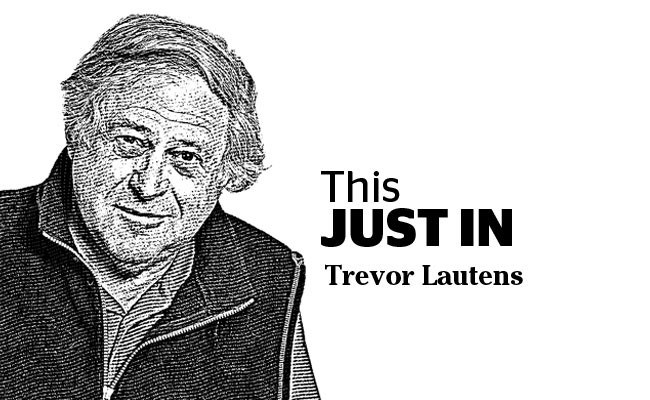Betrayal. The thrice-spotted betrayal by Darryl Plecas unseats Andrew Weaver from top spot as my personal most-disliked politician in these parts – held briefly by the Green leader.
Let us count the ways.
Betrayal one: Plecas betrayed his Liberal colleagues at the lowest point (can they fall lower?) in their fortunes, embellishing his own by the $52,000 a year extra lolly paid to the legislature Speaker.
Betrayal two: By jumping to take the job ecstatically offered by the New Democrats, expanding the NDP-Green coalition lead over the Liberals to three MLA seats, he shamelessly betrayed his Liberal voters and election team.
Yes, politicians from Winston Churchill to W.A.C. Bennett opportunistically switched parties. Plecas is no Churchill or Bennett.
Betrayal three, and worst: A self-betrayal. A self-assassination of personal principle.
How could Plecas explain away that, already an open rebel against Liberal leader Christy Clark, he’d promised barely three months earlier not to seek the Speaker’s chair, and then declare he stated that only because party brass told him to?
“That wasn’t really from me – that was from the premier’s office.” So the wooden-faced puppet lied? No. Blame the ventriloquist.
It must have taken superhuman restraint for riding association president Ron Gladiuk to say he was merely “enraged,” as reported in Mike Smyth’s superb Sept. 10 Province column. Smyth showed masterly professional restraint: Thrifty on comment, Smyth wisely let the recorder run and Plecas self-destruct.
How about this? After his ascension to Speaker, through top-secret negotiations with Mike Farnworth, “Almost everyone from the NDP and the Greens came to see me and wished me well.” He said that? He really said that? Amazing – the beneficiaries of his betrayal, their $105,000 jobs and power more secure, hastened to praise him. Doubtless the Pope has a kind word for Lutherans who return to the universal church.
It will stretch public credulity that a Plecas ruling from the chair, especially on a remotely possible tie-breaking legislature vote, can be entirely divorced from his means of attaining his office – no matter whom it favours. Perhaps especially if and when he rules in favour of the Liberal Opposition. Behind the façade of politics for public consumption, there might be private NDP mutterings (scurrilous, mean) of the bought who didn’t stay bought.
Fairness, though: A mind can change. In 2012, wooed to run for office (ironically by Liberal heavyweight Rich Coleman, and did Shakespeare write this script?), Plecas replied: “When hell freezes over.” Just a devil-may-care guy, I guess.
New to me: His real-life job was as a criminologist teaching at the University of the Fraser Valley – and also, Mike Smyth writes, he “worked for eight years as a federally appointed prison judge.”
A prison judge. Maybe judging issues concerning convicted criminals is perfect career preparation for passing judgment in the house of elastic ethics that has deeply stained both parties.
• • •
Fabulously rich West Vancouver joins similar municipalities with, on average, Metro’s highest poverty rates. Preposterous? No. WV and the others top the foreigners real estate tax loophole index.
• • •
Last year, on the break from a UBC course, I idly picked up a worn paperback in the students’ lounge. It was Bruce Hutchison’s The Incredible Canadian: A Candid Portrait of Mackenzie King, his works, his times, and his nation.
It was published in 1952. It was fresh. More has since been written about Canada’s most fascinating prime minister, including by Hutchison, but the prose, the shrewd thoughtfulness, and the absence of malice and authorial self-preening – so unlike that of some nasty journalists I could mention – lifted it out of its time and enshrined its datelessness. He wrote, and thought, in the tradition of classic historians.
Hutchison died 25 years ago this month, warmly remembered by a knot of his former colleagues and acolytes.
In reporting days from Ottawa, Hutchison typed with such blinding speed and clean copy that he awed a young Pierre Berton. As Sun editorial director he was a rare visitor from his glorious Victoria garden, daily phoning fortunate editorial page editors including West Vancouver’s Frank Rutter. A warm note from Hutch was cherished, like great publisher Stuart Keate’s “blue darts” – leaders who knew the morale value of praising their writers.
The major keeper of the Hutchison flame and close friend, almost a journalistic son, is Vaughn Palmer, the paper’s indispensable read on B.C. politics. Oxford University Press has reissued five Hutchison books – an extraordinary testament to writing going back to 1942’s lyrical The Unknown Country, which he offhandedly told me he wrote in six weeks – with introductions by Vaughn.
A grand footnote to our history in an email Vaughn recently sent me: Hutchison “would be delighted, I think, that the young man he helped put through college by retaining him to chop wood and do other chores is now premier of B.C.”



